Research Methods In Psychology
Saul McLeod, PhD
Editor-in-Chief for Simply Psychology
BSc (Hons) Psychology, MRes, PhD, University of Manchester
Saul McLeod, PhD., is a qualified psychology teacher with over 18 years of experience in further and higher education. He has been published in peer-reviewed journals, including the Journal of Clinical Psychology.
Learn about our Editorial Process
Olivia Guy-Evans, MSc
Associate Editor for Simply Psychology
BSc (Hons) Psychology, MSc Psychology of Education
Olivia Guy-Evans is a writer and associate editor for Simply Psychology. She has previously worked in healthcare and educational sectors.
Research methods in psychology are systematic procedures used to observe, describe, predict, and explain behavior and mental processes. They include experiments, surveys, case studies, and naturalistic observations, ensuring data collection is objective and reliable to understand and explain psychological phenomena.
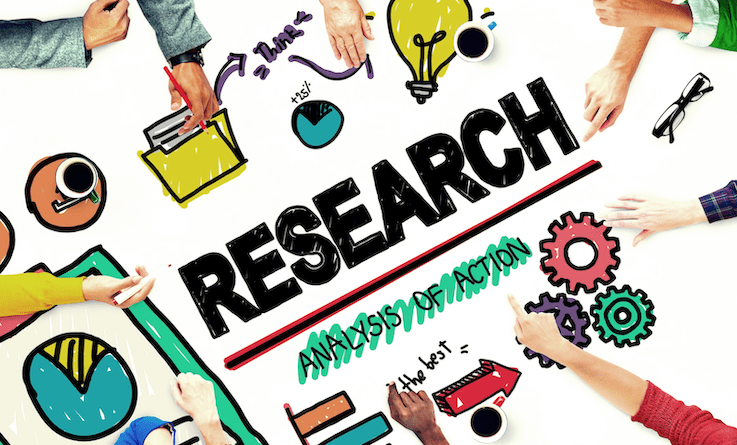
Hypotheses are statements about the prediction of the results, that can be verified or disproved by some investigation.
There are four types of hypotheses :
- Null Hypotheses (H0 ) – these predict that no difference will be found in the results between the conditions. Typically these are written ‘There will be no difference…’
- Alternative Hypotheses (Ha or H1) – these predict that there will be a significant difference in the results between the two conditions. This is also known as the experimental hypothesis.
- One-tailed (directional) hypotheses – these state the specific direction the researcher expects the results to move in, e.g. higher, lower, more, less. In a correlation study, the predicted direction of the correlation can be either positive or negative.
- Two-tailed (non-directional) hypotheses – these state that a difference will be found between the conditions of the independent variable but does not state the direction of a difference or relationship. Typically these are always written ‘There will be a difference ….’
All research has an alternative hypothesis (either a one-tailed or two-tailed) and a corresponding null hypothesis.
Once the research is conducted and results are found, psychologists must accept one hypothesis and reject the other.
So, if a difference is found, the Psychologist would accept the alternative hypothesis and reject the null. The opposite applies if no difference is found.
Sampling techniques
Sampling is the process of selecting a representative group from the population under study.
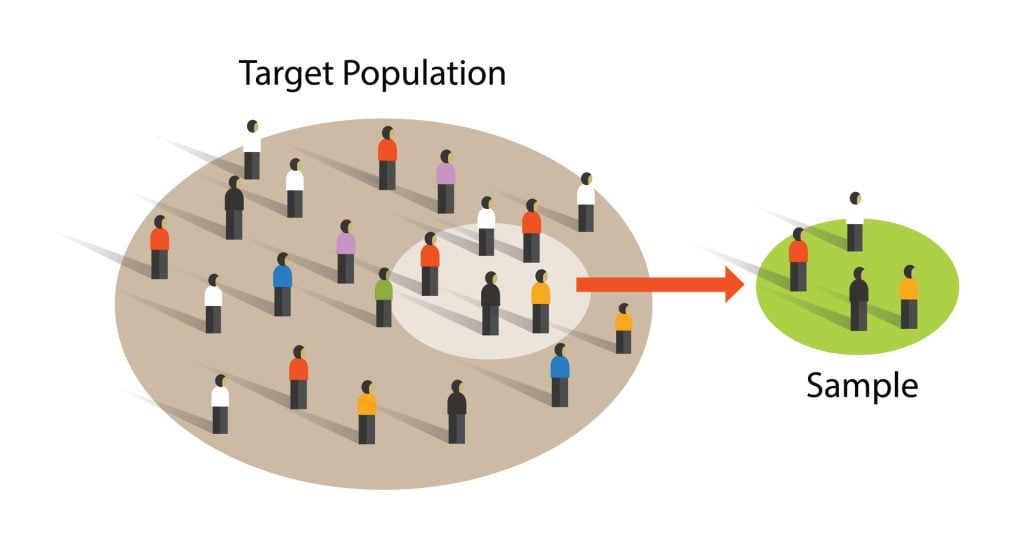
A sample is the participants you select from a target population (the group you are interested in) to make generalizations about.
Representative means the extent to which a sample mirrors a researcher’s target population and reflects its characteristics.
Generalisability means the extent to which their findings can be applied to the larger population of which their sample was a part.
- Volunteer sample : where participants pick themselves through newspaper adverts, noticeboards or online.
- Opportunity sampling : also known as convenience sampling , uses people who are available at the time the study is carried out and willing to take part. It is based on convenience.
- Random sampling : when every person in the target population has an equal chance of being selected. An example of random sampling would be picking names out of a hat.
- Systematic sampling : when a system is used to select participants. Picking every Nth person from all possible participants. N = the number of people in the research population / the number of people needed for the sample.
- Stratified sampling : when you identify the subgroups and select participants in proportion to their occurrences.
- Snowball sampling : when researchers find a few participants, and then ask them to find participants themselves and so on.
- Quota sampling : when researchers will be told to ensure the sample fits certain quotas, for example they might be told to find 90 participants, with 30 of them being unemployed.
Experiments always have an independent and dependent variable .
- The independent variable is the one the experimenter manipulates (the thing that changes between the conditions the participants are placed into). It is assumed to have a direct effect on the dependent variable.
- The dependent variable is the thing being measured, or the results of the experiment.
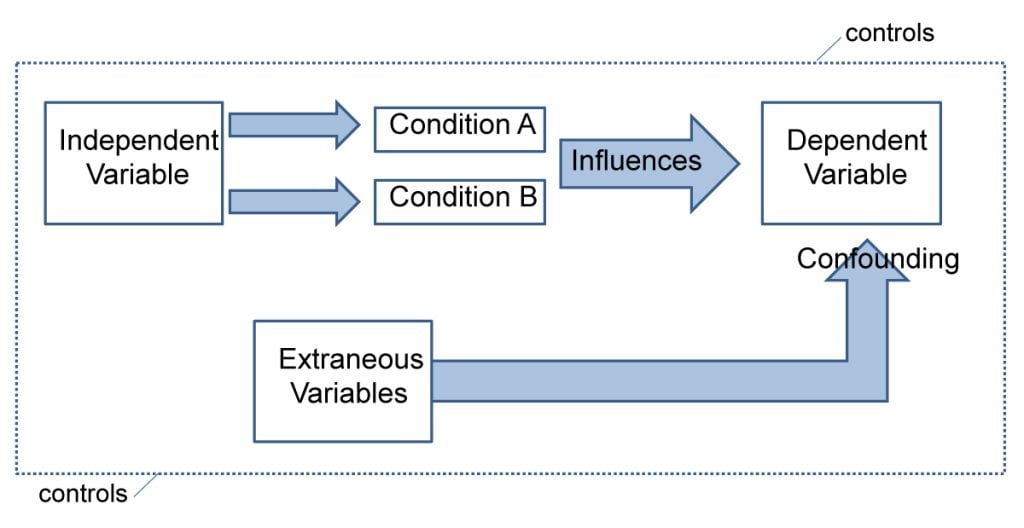
Operationalization of variables means making them measurable/quantifiable. We must use operationalization to ensure that variables are in a form that can be easily tested.
For instance, we can’t really measure ‘happiness’, but we can measure how many times a person smiles within a two-hour period.
By operationalizing variables, we make it easy for someone else to replicate our research. Remember, this is important because we can check if our findings are reliable.
Extraneous variables are all variables which are not independent variable but could affect the results of the experiment.
It can be a natural characteristic of the participant, such as intelligence levels, gender, or age for example, or it could be a situational feature of the environment such as lighting or noise.
Demand characteristics are a type of extraneous variable that occurs if the participants work out the aims of the research study, they may begin to behave in a certain way.
For example, in Milgram’s research , critics argued that participants worked out that the shocks were not real and they administered them as they thought this was what was required of them.
Extraneous variables must be controlled so that they do not affect (confound) the results.
Randomly allocating participants to their conditions or using a matched pairs experimental design can help to reduce participant variables.
Situational variables are controlled by using standardized procedures, ensuring every participant in a given condition is treated in the same way

Experimental Design
Experimental design refers to how participants are allocated to each condition of the independent variable, such as a control or experimental group.
- Independent design ( between-groups design ): each participant is selected for only one group. With the independent design, the most common way of deciding which participants go into which group is by means of randomization.
- Matched participants design : each participant is selected for only one group, but the participants in the two groups are matched for some relevant factor or factors (e.g. ability; sex; age).
- Repeated measures design ( within groups) : each participant appears in both groups, so that there are exactly the same participants in each group.
- The main problem with the repeated measures design is that there may well be order effects. Their experiences during the experiment may change the participants in various ways.
- They may perform better when they appear in the second group because they have gained useful information about the experiment or about the task. On the other hand, they may perform less well on the second occasion because of tiredness or boredom.
- Counterbalancing is the best way of preventing order effects from disrupting the findings of an experiment, and involves ensuring that each condition is equally likely to be used first and second by the participants.
If we wish to compare two groups with respect to a given independent variable, it is essential to make sure that the two groups do not differ in any other important way.
Experimental Methods
All experimental methods involve an iv (independent variable) and dv (dependent variable)..
The researcher decides where the experiment will take place, at what time, with which participants, in what circumstances, using a standardized procedure.
- Field experiments are conducted in the everyday (natural) environment of the participants. The experimenter still manipulates the IV, but in a real-life setting. It may be possible to control extraneous variables, though such control is more difficult than in a lab experiment.
- Natural experiments are when a naturally occurring IV is investigated that isn’t deliberately manipulated, it exists anyway. Participants are not randomly allocated, and the natural event may only occur rarely.
Case studies are in-depth investigations of a person, group, event, or community. It uses information from a range of sources, such as from the person concerned and also from their family and friends.
Many techniques may be used such as interviews, psychological tests, observations and experiments. Case studies are generally longitudinal: in other words, they follow the individual or group over an extended period of time.
Case studies are widely used in psychology and among the best-known ones carried out were by Sigmund Freud . He conducted very detailed investigations into the private lives of his patients in an attempt to both understand and help them overcome their illnesses.
Case studies provide rich qualitative data and have high levels of ecological validity. However, it is difficult to generalize from individual cases as each one has unique characteristics.
Correlational Studies
Correlation means association; it is a measure of the extent to which two variables are related. One of the variables can be regarded as the predictor variable with the other one as the outcome variable.
Correlational studies typically involve obtaining two different measures from a group of participants, and then assessing the degree of association between the measures.
The predictor variable can be seen as occurring before the outcome variable in some sense. It is called the predictor variable, because it forms the basis for predicting the value of the outcome variable.
Relationships between variables can be displayed on a graph or as a numerical score called a correlation coefficient.
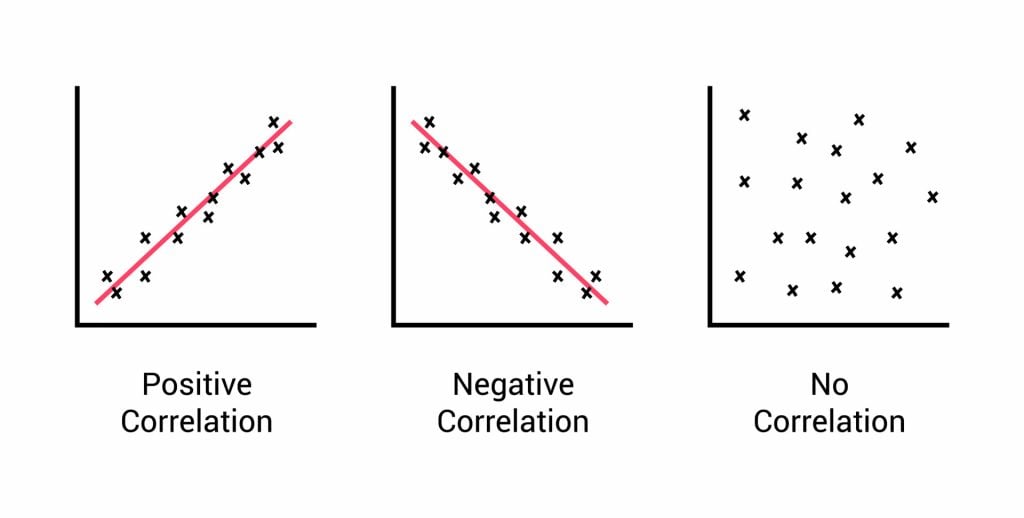
- If an increase in one variable tends to be associated with an increase in the other, then this is known as a positive correlation .
- If an increase in one variable tends to be associated with a decrease in the other, then this is known as a negative correlation .
- A zero correlation occurs when there is no relationship between variables.
After looking at the scattergraph, if we want to be sure that a significant relationship does exist between the two variables, a statistical test of correlation can be conducted, such as Spearman’s rho.
The test will give us a score, called a correlation coefficient . This is a value between 0 and 1, and the closer to 1 the score is, the stronger the relationship between the variables. This value can be both positive e.g. 0.63, or negative -0.63.
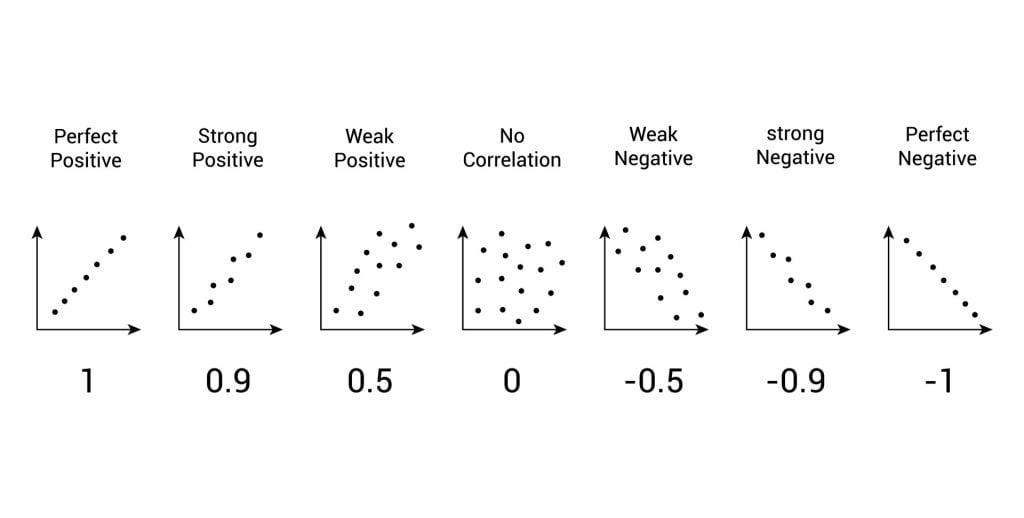
A correlation between variables, however, does not automatically mean that the change in one variable is the cause of the change in the values of the other variable. A correlation only shows if there is a relationship between variables.
Correlation does not always prove causation, as a third variable may be involved.
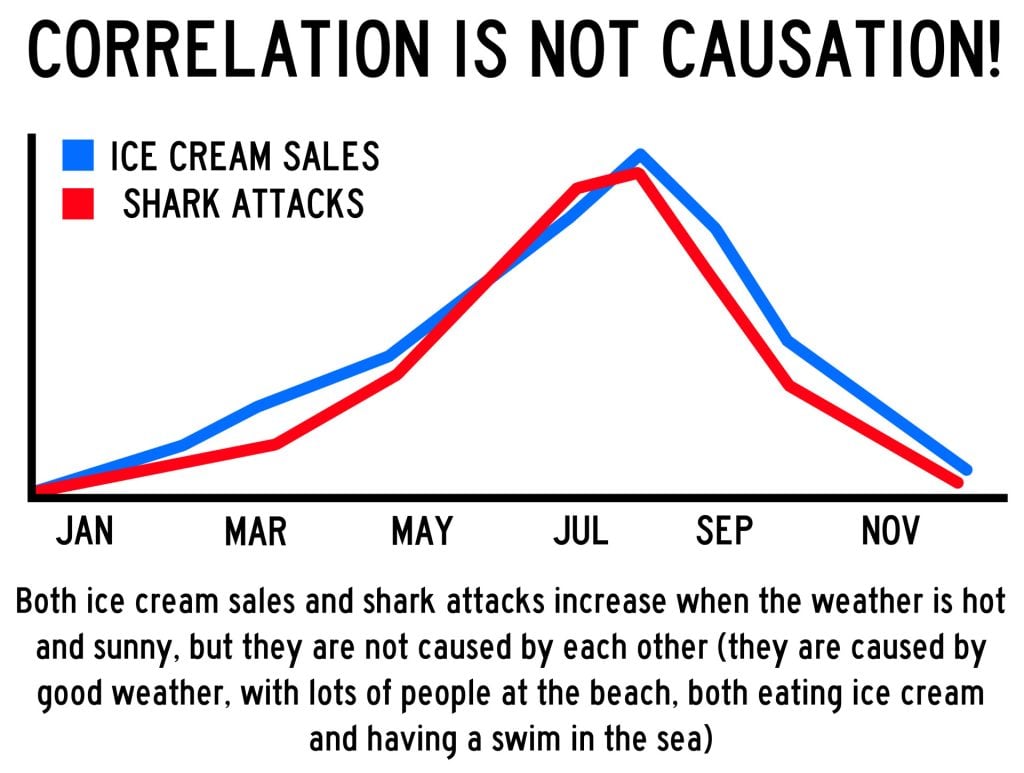
Interview Methods
Interviews are commonly divided into two types: structured and unstructured.
A fixed, predetermined set of questions is put to every participant in the same order and in the same way.
Responses are recorded on a questionnaire, and the researcher presets the order and wording of questions, and sometimes the range of alternative answers.
The interviewer stays within their role and maintains social distance from the interviewee.
There are no set questions, and the participant can raise whatever topics he/she feels are relevant and ask them in their own way. Questions are posed about participants’ answers to the subject
Unstructured interviews are most useful in qualitative research to analyze attitudes and values.
Though they rarely provide a valid basis for generalization, their main advantage is that they enable the researcher to probe social actors’ subjective point of view.
Questionnaire Method
Questionnaires can be thought of as a kind of written interview. They can be carried out face to face, by telephone, or post.
The choice of questions is important because of the need to avoid bias or ambiguity in the questions, ‘leading’ the respondent or causing offense.
- Open questions are designed to encourage a full, meaningful answer using the subject’s own knowledge and feelings. They provide insights into feelings, opinions, and understanding. Example: “How do you feel about that situation?”
- Closed questions can be answered with a simple “yes” or “no” or specific information, limiting the depth of response. They are useful for gathering specific facts or confirming details. Example: “Do you feel anxious in crowds?”
Its other practical advantages are that it is cheaper than face-to-face interviews and can be used to contact many respondents scattered over a wide area relatively quickly.
Observations
There are different types of observation methods :
- Covert observation is where the researcher doesn’t tell the participants they are being observed until after the study is complete. There could be ethical problems or deception and consent with this particular observation method.
- Overt observation is where a researcher tells the participants they are being observed and what they are being observed for.
- Controlled : behavior is observed under controlled laboratory conditions (e.g., Bandura’s Bobo doll study).
- Natural : Here, spontaneous behavior is recorded in a natural setting.
- Participant : Here, the observer has direct contact with the group of people they are observing. The researcher becomes a member of the group they are researching.
- Non-participant (aka “fly on the wall): The researcher does not have direct contact with the people being observed. The observation of participants’ behavior is from a distance
Pilot Study
A pilot study is a small scale preliminary study conducted in order to evaluate the feasibility of the key s teps in a future, full-scale project.
A pilot study is an initial run-through of the procedures to be used in an investigation; it involves selecting a few people and trying out the study on them. It is possible to save time, and in some cases, money, by identifying any flaws in the procedures designed by the researcher.
A pilot study can help the researcher spot any ambiguities (i.e. unusual things) or confusion in the information given to participants or problems with the task devised.
Sometimes the task is too hard, and the researcher may get a floor effect, because none of the participants can score at all or can complete the task – all performances are low.
The opposite effect is a ceiling effect, when the task is so easy that all achieve virtually full marks or top performances and are “hitting the ceiling”.
Research Design
In cross-sectional research , a researcher compares multiple segments of the population at the same time
Sometimes, we want to see how people change over time, as in studies of human development and lifespan. Longitudinal research is a research design in which data-gathering is administered repeatedly over an extended period of time.
In cohort studies , the participants must share a common factor or characteristic such as age, demographic, or occupation. A cohort study is a type of longitudinal study in which researchers monitor and observe a chosen population over an extended period.
Triangulation means using more than one research method to improve the study’s validity.
Reliability
Reliability is a measure of consistency, if a particular measurement is repeated and the same result is obtained then it is described as being reliable.
- Test-retest reliability : assessing the same person on two different occasions which shows the extent to which the test produces the same answers.
- Inter-observer reliability : the extent to which there is an agreement between two or more observers.
Meta-Analysis
Meta-analysis is a statistical procedure used to combine and synthesize findings from multiple independent studies to estimate the average effect size for a particular research question.
Meta-analysis goes beyond traditional narrative reviews by using statistical methods to integrate the results of several studies, leading to a more objective appraisal of the evidence.
This is done by looking through various databases, and then decisions are made about what studies are to be included/excluded.
- Strengths : Increases the conclusions’ validity as they’re based on a wider range.
- Weaknesses : Research designs in studies can vary, so they are not truly comparable.
Peer Review
A researcher submits an article to a journal. The choice of the journal may be determined by the journal’s audience or prestige.
The journal selects two or more appropriate experts (psychologists working in a similar field) to peer review the article without payment. The peer reviewers assess: the methods and designs used, originality of the findings, the validity of the original research findings and its content, structure and language.
Feedback from the reviewer determines whether the article is accepted. The article may be: Accepted as it is, accepted with revisions, sent back to the author to revise and re-submit or rejected without the possibility of submission.
The editor makes the final decision whether to accept or reject the research report based on the reviewers comments/ recommendations.
Peer review is important because it prevent faulty data from entering the public domain, it provides a way of checking the validity of findings and the quality of the methodology and is used to assess the research rating of university departments.
Peer reviews may be an ideal, whereas in practice there are lots of problems. For example, it slows publication down and may prevent unusual, new work being published. Some reviewers might use it as an opportunity to prevent competing researchers from publishing work.
Some people doubt whether peer review can really prevent the publication of fraudulent research.
The advent of the internet means that a lot of research and academic comment is being published without official peer reviews than before, though systems are evolving on the internet where everyone really has a chance to offer their opinions and police the quality of research.
Types of Data
- Quantitative data is numerical data e.g. reaction time or number of mistakes. It represents how much or how long, how many there are of something. A tally of behavioral categories and closed questions in a questionnaire collect quantitative data.
- Qualitative data is virtually any type of information that can be observed and recorded that is not numerical in nature and can be in the form of written or verbal communication. Open questions in questionnaires and accounts from observational studies collect qualitative data.
- Primary data is first-hand data collected for the purpose of the investigation.
- Secondary data is information that has been collected by someone other than the person who is conducting the research e.g. taken from journals, books or articles.
Validity means how well a piece of research actually measures what it sets out to, or how well it reflects the reality it claims to represent.
Validity is whether the observed effect is genuine and represents what is actually out there in the world.
- Concurrent validity is the extent to which a psychological measure relates to an existing similar measure and obtains close results. For example, a new intelligence test compared to an established test.
- Face validity : does the test measure what it’s supposed to measure ‘on the face of it’. This is done by ‘eyeballing’ the measuring or by passing it to an expert to check.
- Ecological validit y is the extent to which findings from a research study can be generalized to other settings / real life.
- Temporal validity is the extent to which findings from a research study can be generalized to other historical times.
Features of Science
- Paradigm – A set of shared assumptions and agreed methods within a scientific discipline.
- Paradigm shift – The result of the scientific revolution: a significant change in the dominant unifying theory within a scientific discipline.
- Objectivity – When all sources of personal bias are minimised so not to distort or influence the research process.
- Empirical method – Scientific approaches that are based on the gathering of evidence through direct observation and experience.
- Replicability – The extent to which scientific procedures and findings can be repeated by other researchers.
- Falsifiability – The principle that a theory cannot be considered scientific unless it admits the possibility of being proved untrue.
Statistical Testing
A significant result is one where there is a low probability that chance factors were responsible for any observed difference, correlation, or association in the variables tested.
If our test is significant, we can reject our null hypothesis and accept our alternative hypothesis.
If our test is not significant, we can accept our null hypothesis and reject our alternative hypothesis. A null hypothesis is a statement of no effect.
In Psychology, we use p < 0.05 (as it strikes a balance between making a type I and II error) but p < 0.01 is used in tests that could cause harm like introducing a new drug.
A type I error is when the null hypothesis is rejected when it should have been accepted (happens when a lenient significance level is used, an error of optimism).
A type II error is when the null hypothesis is accepted when it should have been rejected (happens when a stringent significance level is used, an error of pessimism).
Ethical Issues
- Informed consent is when participants are able to make an informed judgment about whether to take part. It causes them to guess the aims of the study and change their behavior.
- To deal with it, we can gain presumptive consent or ask them to formally indicate their agreement to participate but it may invalidate the purpose of the study and it is not guaranteed that the participants would understand.
- Deception should only be used when it is approved by an ethics committee, as it involves deliberately misleading or withholding information. Participants should be fully debriefed after the study but debriefing can’t turn the clock back.
- All participants should be informed at the beginning that they have the right to withdraw if they ever feel distressed or uncomfortable.
- It causes bias as the ones that stayed are obedient and some may not withdraw as they may have been given incentives or feel like they’re spoiling the study. Researchers can offer the right to withdraw data after participation.
- Participants should all have protection from harm . The researcher should avoid risks greater than those experienced in everyday life and they should stop the study if any harm is suspected. However, the harm may not be apparent at the time of the study.
- Confidentiality concerns the communication of personal information. The researchers should not record any names but use numbers or false names though it may not be possible as it is sometimes possible to work out who the researchers were.
Thank you for visiting nature.com. You are using a browser version with limited support for CSS. To obtain the best experience, we recommend you use a more up to date browser (or turn off compatibility mode in Internet Explorer). In the meantime, to ensure continued support, we are displaying the site without styles and JavaScript.
- View all journals
- Explore content
- About the journal
- Publish with us
- Sign up for alerts
Collection 06 March 2024
Psychology Top 100 of 2023
This collection highlights the most downloaded* psychology research papers published by Scientific Reports in 2023. Featuring authors from around the world, these papers highlight valuable research from an international community.
You can also view the journal's overall Top 100 or the Top 100 within various subject areas . *Data obtained from SN Insights, which is based on Digital Science’s Dimensions.
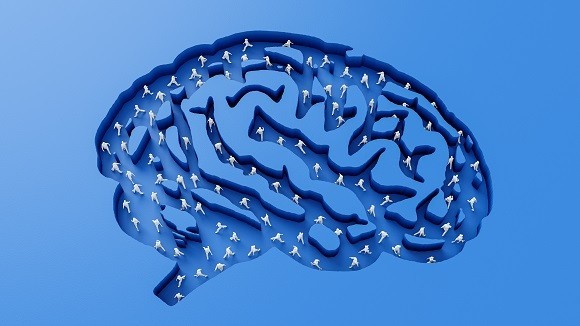
Mild internet use is associated with epigenetic alterations of key neurotransmission genes in salivary DNA of young university students
- Eugenia Annunzi
- Loreta Cannito
- Claudio D’Addario
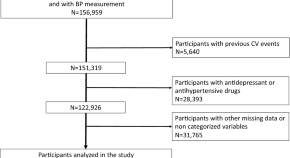
Association between cannabis use and blood pressure levels according to comorbidities and socioeconomic status
- Alexandre Vallée
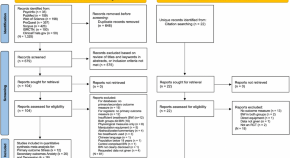
Effect of breathwork on stress and mental health: A meta-analysis of randomised-controlled trials
- Guy William Fincham
- Clara Strauss
- Kate Cavanagh
Attention-deficit hyperactivity disorder traits are a more important predictor of internalising problems than autistic traits
- Luca D. Hargitai
- Lucy A. Livingston
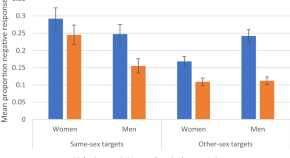
Married women with children experience greater intrasexual competition than their male counterparts
- Joyce F. Benenson
- Henry Markovits
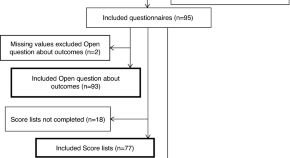
Treatment of 95 post-Covid patients with SSRIs
- Carla P. Rus
- Bert E. K. de Vries
- J. J. Sandra Kooij
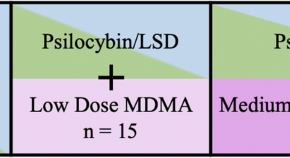
Co-use of MDMA with psilocybin/LSD may buffer against challenging experiences and enhance positive experiences
- Richard J. Zeifman
- Hannes Kettner
- Robin L. Carhart-Harris
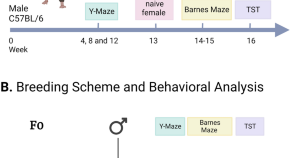
Learning and memory deficits produced by aspartame are heritable via the paternal lineage
- Sara K. Jones
- Deirdre M. McCarthy
- Pradeep G. Bhide
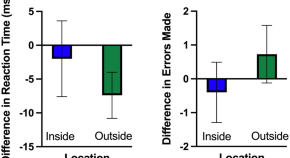
Exercising is good for the brain but exercising outside is potentially better
- Katherine Boere
- Kelsey Lloyd
- Olave E. Krigolson
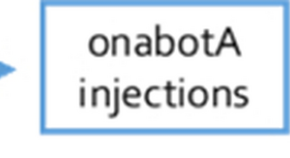
Modulation of amygdala activity for emotional faces due to botulinum toxin type A injections that prevent frowning
- Shauna Stark
- Craig Stark
- Mitchell F. Brin
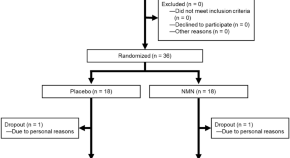
Nicotinamide adenine dinucleotide metabolism and arterial stiffness after long-term nicotinamide mononucleotide supplementation: a randomized, double-blind, placebo-controlled trial
- Takeshi Katayoshi
- Sachi Uehata
- Kentaro Tsuji-Naito
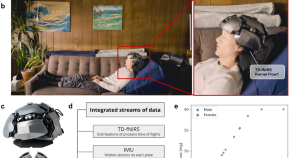
Measuring acute effects of subanesthetic ketamine on cerebrovascular hemodynamics in humans using TD-fNIRS
- Adelaida Castillo
- Julien Dubois
- Moriah Taylor
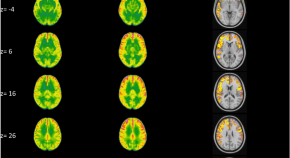
Cerebral hypoperfusion in post-COVID-19 cognitively impaired subjects revealed by arterial spin labeling MRI
- Miloš Ajčević
- Katerina Iscra
- Paolo Manganotti
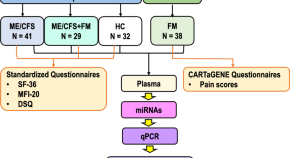
Circulating microRNA expression signatures accurately discriminate myalgic encephalomyelitis from fibromyalgia and comorbid conditions
- Evguenia Nepotchatykh
- Iurie Caraus
- Alain Moreau
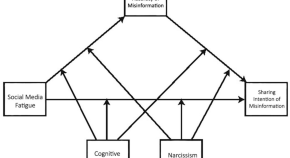
Examining the association between social media fatigue, cognitive ability, narcissism and misinformation sharing: cross-national evidence from eight countries
- Saifuddin Ahmed
- Muhammad Ehab Rasul
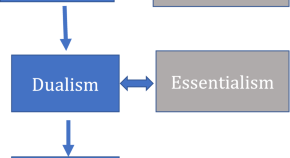
The illusion of the mind–body divide is attenuated in males
- Iris Berent
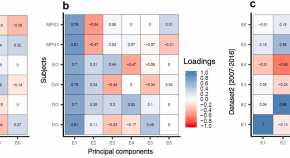
Genome-wide association study of school grades identifies genetic overlap between language ability, psychopathology and creativity
- Veera M. Rajagopal
- Andrea Ganna
- Ditte Demontis
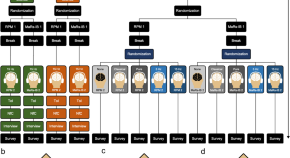
Reverse effect of home-use binaural beats brain stimulation
- Michal Klichowski
- Andrzej Wicher
- Roman Golebiewski
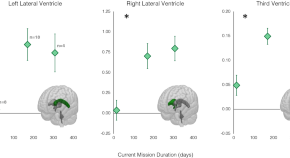
Impacts of spaceflight experience on human brain structure
- Heather R. McGregor
- Kathleen E. Hupfeld
- Rachael D. Seidler
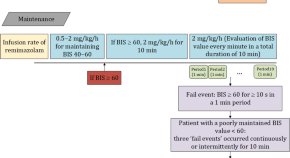
Frequency and characteristics of patients with bispectral index values of 60 or higher during the induction and maintenance of general anesthesia with remimazolam
- Byung-Moon Choi
- Ju-Seung Lee
- Gyu-Jeong Noh
Cognitive impairment in young adults with post COVID-19 syndrome
- Elena Herrera
- María del Carmen Pérez-Sánchez
- María González-Nosti
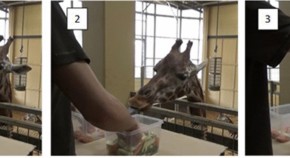
Giraffes make decisions based on statistical information
- Alvaro L. Caicoya
- Montserrat Colell
- Federica Amici
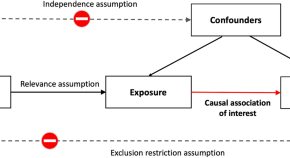
Genetic insights into the causal relationship between physical activity and cognitive functioning
- Boris Cheval
- Liza Darrous
- Matthieu P. Boisgontier
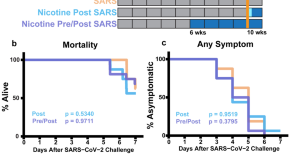
Nicotine exposure decreases likelihood of SARS-CoV-2 RNA expression and neuropathology in the hACE2 mouse brain but not moribundity
- Ayland C. Letsinger
- James M. Ward
- Jerrel L. Yakel
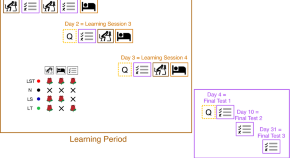
Presenting rose odor during learning, sleep and retrieval helps to improve memory consolidation: a real-life study
- Jessica Knötzele
- Dieter Riemann
- Jürgen Kornmeier
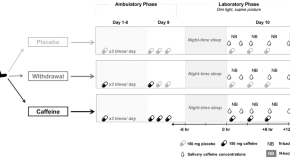
Brain activity during a working memory task after daily caffeine intake and caffeine withdrawal: a randomized double-blind placebo-controlled trial
- Yu-Shiuan Lin
- Janine Weibel
- Carolin Franziska Reichert
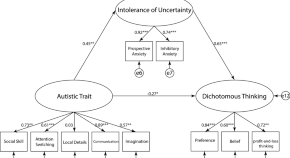
Autistic traits associated with dichotomic thinking mediated by intolerance of uncertainty
- Masahiro Hirai
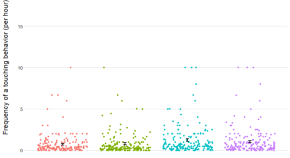
Love and affectionate touch toward romantic partners all over the world
- Agnieszka Sorokowska
- Marta Kowal
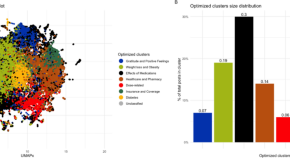
Semaglutide and Tirzepatide reduce alcohol consumption in individuals with obesity
- Fatima Quddos
- Zachary Hubshman
- Warren K. Bickel
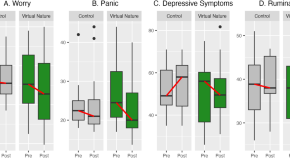
Daily exposure to virtual nature reduces symptoms of anxiety in college students
- Matthew H. E. M. Browning
- Seunguk Shin
- Wendy Heller
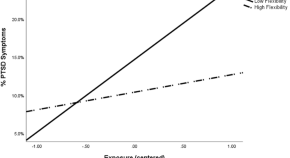
The role of cognitive flexibility in moderating the effect of school-related stress exposure
- Einat Levy-Gigi
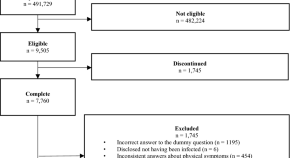
Association of preexisting psychiatric disorders with post-COVID-19 prevalence: a cross-sectional study
- Mayumi Kataoka
- Megumi Hazumi
- Daisuke Nishi
Evaluating the complete (44-item), short (20-item) and ultra-short (10-item) versions of the Big Five Inventory (BFI) in the Brazilian population
- Raul Costa Mastrascusa
- Matheus Loli de Oliveira Fenili Antunes
- Tatiana Quarti Irigaray
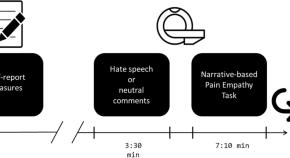
Exposure to hate speech deteriorates neurocognitive mechanisms of the ability to understand others’ pain
- Agnieszka Pluta
- Joanna Mazurek
- Michał Bilewicz
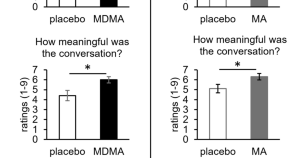
Drug-induced social connection: both MDMA and methamphetamine increase feelings of connectedness during controlled dyadic conversations
- Hanna Molla
- Harriet de Wit
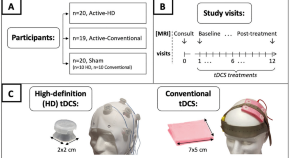
Transcranial direct current stimulation (tDCS) in depression induces structural plasticity
- Mayank A Jog
- Cole Anderson
- Katherine Narr
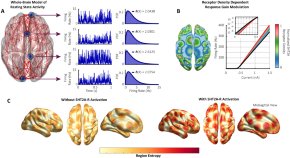
A whole-brain model of the neural entropy increase elicited by psychedelic drugs
- Rubén Herzog
- Pedro A. M. Mediano
- Rodrigo Cofre
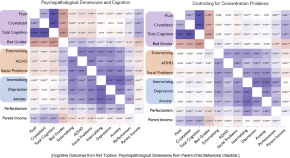
Impact and centrality of attention dysregulation on cognition, anxiety, and low mood in adolescents
- Clark Roberts
- Barbara J. Sahakian
- Graham K. Murray
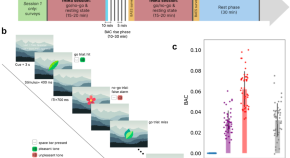
Change in brain asymmetry reflects level of acute alcohol intoxication and impacts on inhibitory control
- Ryan M. Field
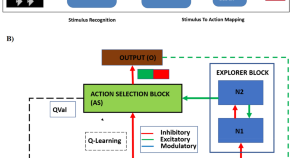
A generalized reinforcement learning based deep neural network agent model for diverse cognitive constructs
- Sandeep Sathyanandan Nair
- Vignayanandam Ravindernath Muddapu
- V. Srinivasa Chakravarthy
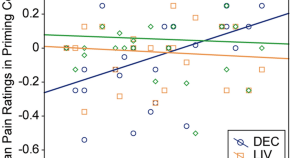
Exploring the role of empathy in prolonged grief reactions to bereavement
- Takuya Yoshiike
- Francesco Benedetti
- Kenichi Kuriyama

Children and adults rely on different heuristics for estimation of durations
- Sandra Stojić
- Vanja Topić
- Zoltan Nadasdy
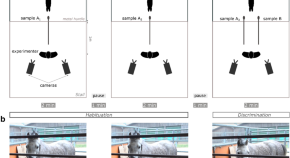
Horses discriminate human body odors between fear and joy contexts in a habituation-discrimination protocol
- Plotine Jardat
- Alexandra Destrez
- Léa Lansade
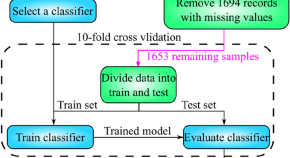
Prognosis prediction in traumatic brain injury patients using machine learning algorithms
- Hosseinali Khalili
- Maziyar Rismani
- U. Rajendra Acharya
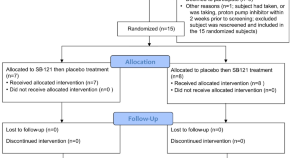
Results of a phase Ib study of SB-121, an investigational probiotic formulation, a randomized controlled trial in participants with autism spectrum disorder
- Lauren M. Schmitt
- Elizabeth G. Smith
- Craig A. Erickson
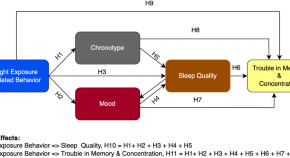
Light exposure behaviors predict mood, memory and sleep quality
- Mushfiqul Anwar Siraji
- Manuel Spitschan
- Shamsul Haque
Personality traits and dimensions of mental health
- Francois Steffens
- Antonio Malvaso
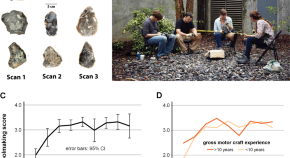
Neuroplasticity enables bio-cultural feedback in Paleolithic stone-tool making
- Erin Elisabeth Hecht
- Justin Pargeter
- Dietrich Stout
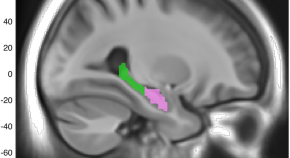
APOE ɛ4, but not polygenic Alzheimer’s disease risk, is related to longitudinal decrease in hippocampal brain activity in non-demented individuals
- Sofia Håglin
- Karolina Kauppi
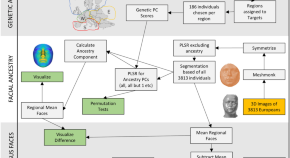
Exploring regional aspects of 3D facial variation within European individuals
- Franziska Wilke
- Noah Herrick
- Susan Walsh
Personality traits and decision-making styles among obstetricians and gynecologists managing childbirth emergencies
- Gabriel Raoust
- Petri Kajonius
- Stefan Hansson
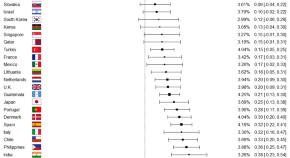
Greater traditionalism predicts COVID-19 precautionary behaviors across 27 societies
- Theodore Samore
- Daniel M. T. Fessler
- Xiao-Tian Wang
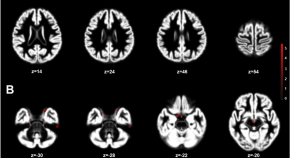
Gray matter differences associated with menopausal hormone therapy in menopausal women: a DARTEL-based VBM study
- Tae-Hoon Kim
- ByoungRyun Kim
- Young Hwan Lee
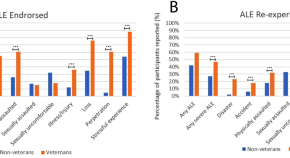
Prevalence and therapeutic impact of adverse life event reexperiencing under ceremonial ayahuasca
- Brandon Weiss
- Aleksandra Wingert
- W. Keith Campbell
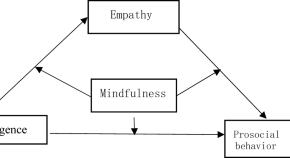
Mindfulness may be associated with less prosocial engagement among high intelligence individuals
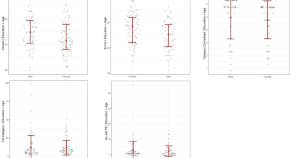
Proteomic association with age-dependent sex differences in Wisconsin Card Sorting Test performance in healthy Thai subjects
- Bupachad Khanthiyong
- Sutisa Nudmamud-Thanoi
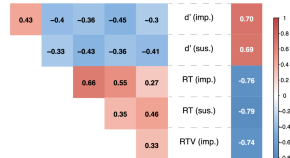
Contribution of sustained attention abilities to real-world academic skills in children
- Courtney L. Gallen
- Simon Schaerlaeken
- Adam Gazzaley
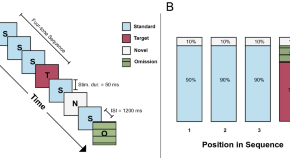
Synchrony to a beat predicts synchrony with other minds
- Sophie Wohltjen
- Brigitta Toth
- Thalia Wheatley
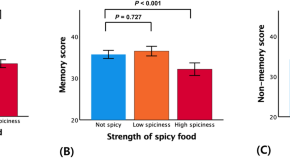
Spicy food intake predicts Alzheimer-related cognitive decline in older adults with low physical activity
- Jaeuk Hwang
- Young Min Choe
- Jee Wook Kim
Academic burnout among master and doctoral students during the COVID-19 pandemic
- Diego Andrade
- Icaro J. S. Ribeiro
- Orsolya Máté
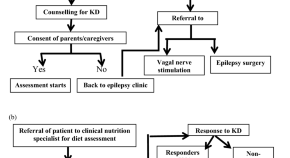
Ketogenic diet for epilepsy control and enhancement in adaptive behavior
- Omnia Fathy El-Rashidy
- May Fouad Nassar
- Yasmin Gamal Abdou El Gendy
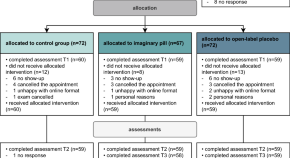
Imaginary pills and open-label placebos can reduce test anxiety by means of placebo mechanisms
- Sarah Buergler
- Dilan Sezer
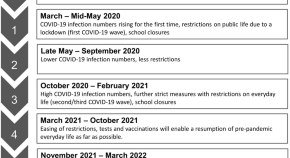
Impact of the COVID-19 pandemic on young people with and without pre-existing mental health problems
- Ronja Kleine
- Artur Galimov
- Julia Hansen
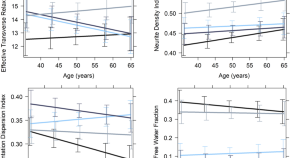
Dysfunction of the hypothalamic-pituitary adrenal axis and its influence on aging: the role of the hypothalamus
- Melanie Spindler
- Marco Palombo
- Christiane M. Thiel
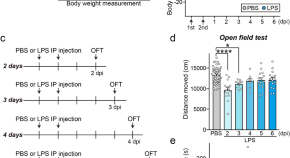
LPS induces microglial activation and GABAergic synaptic deficits in the hippocampus accompanied by prolonged cognitive impairment
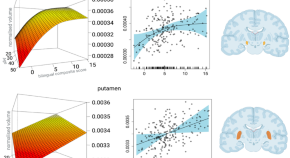
Dynamic effects of bilingualism on brain structure map onto general principles of experience-based neuroplasticity
- J. Treffers-Daller
- C. Pliatsikas
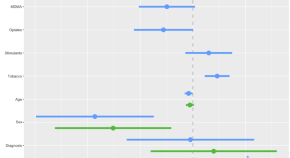
Alternative beliefs in psychedelic drug users
- Alexander V. Lebedev
- Predrag Petrovic
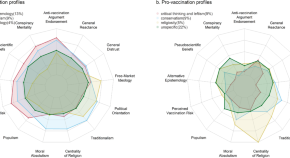
Psychological profiles of anti-vaccination argument endorsement
- Dawn L. Holford
- Angelo Fasce
- Stephan Lewandowsky
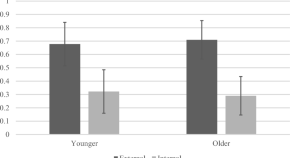
Memory compensation strategies in everyday life: similarities and differences between younger and older adults
- Madeleine J. Radnan
- Riley Nicholson
- Celia B. Harris
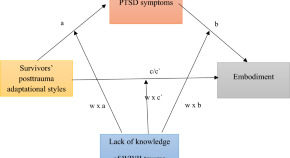
Long-lasting effects of World War II trauma on PTSD symptoms and embodiment levels in a national sample of Poles
- Marcin Rzeszutek
- Małgorzata Dragan
- Szymon Szumiał
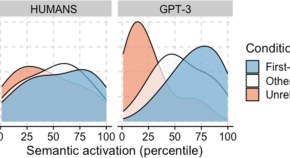
Overlap in meaning is a stronger predictor of semantic activation in GPT-3 than in humans
- Jan Digutsch
- Michal Kosinski
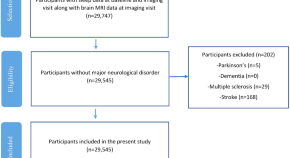
Poorer sleep impairs brain health at midlife
- Tergel Namsrai
- Ananthan Ambikairajah
- Nicolas Cherbuin
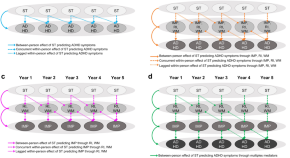
Screen time, impulsivity, neuropsychological functions and their relationship to growth in adolescent attention-deficit/hyperactivity disorder symptoms
- Jasmina Wallace
- Elroy Boers
- Patricia Conrod
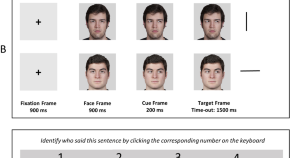

Linguistic identity as a modulator of gaze cueing of attention
- Anna Lorenzoni
- Giulia Calignano
- Eduardo Navarrete
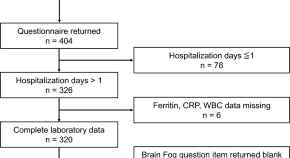
Serum ferritin level during hospitalization is associated with Brain Fog after COVID-19
- Teruyuki Ishikura
- Tomohito Nakano
- Takashi Naka
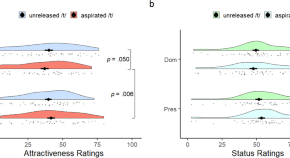
Articulatory effects on perceptions of men’s status and attractiveness
- Sethu Karthikeyan
- David A. Puts
- Glenn Geher
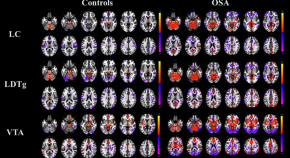
Altered functional connectivity of the ascending reticular activating system in obstructive sleep apnea
- Jung-Ick Byun
- Geon-Ho Jahng
- Won Chul Shin
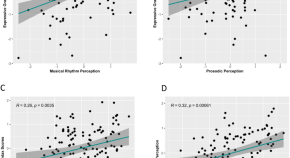
Exploring individual differences in musical rhythm and grammar skills in school-aged children with typically developing language
- Rachana Nitin
- Daniel E. Gustavson
- Reyna L. Gordon
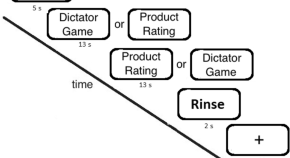
Experiencing sweet taste is associated with an increase in prosocial behavior
- Michael Schaefer
- Anja Kühnel
- Matti Gärtner

Hypnotic suggestions cognitively penetrate tactile perception through top-down modulation of semantic contents
- Marius Markmann
- Melanie Lenz
- Albert Newen
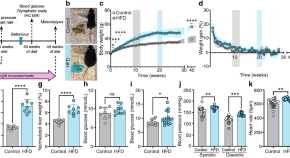
Long-term high-fat diet increases glymphatic activity in the hypothalamus in mice
- Christine Delle
- Neža Cankar
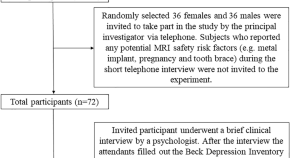
Emotional face expression recognition in problematic Internet use and excessive smartphone use: task-based fMRI study
- Szilvia Anett Nagy
- Gergely Darnai
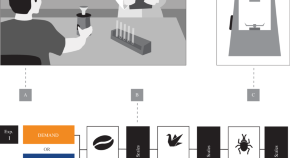
Conflict experience and resolution underlying obedience to authority
- Felix J. Götz
- Vanessa Mitschke
- Andreas B. Eder
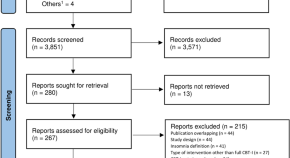
Comparative efficacy of onsite, digital, and other settings for cognitive behavioral therapy for insomnia: a systematic review and network meta-analysis
- Laura Simon
- Lisa Steinmetz
- Harald Baumeister
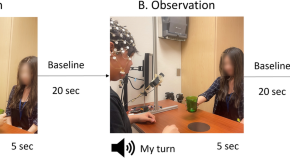
Simultaneous multimodal fNIRS-EEG recordings reveal new insights in neural activity during motor execution, observation, and imagery
- Wan-Chun Su
- Hadis Dashtestani
- Amir Gandjbakhche

Facial emotion recognition in patients with depression compared to healthy controls when using human avatars
- Marta Monferrer
- Arturo S. García
- Patricia Fernández-Sotos

Evidence that the aesthetic preference for Hogarth’s Line of Beauty is an evolutionary by-product
- Ronald Hübner
- David M. G. Lewis
- Jonathon Flores
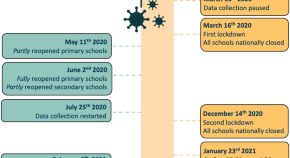
Effects of COVID-19 pandemic on structural brain development in early adolescence
- L. van Drunen
- Y. J. Toenders
- E. A. Crone
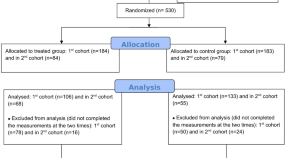
Improving stress management, anxiety, and mental well-being in medical students through an online Mindfulness-Based Intervention: a randomized study
- Teresa Fazia
- Francesco Bubbico
- Luisa Bernardinelli
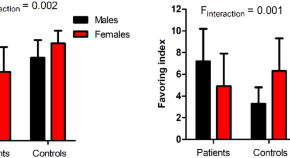
Sex-related differences in parental rearing patterns in young adults with bipolar disorder
- Huifang Zhao
- Xujing Zhang
- Fengchun Wu
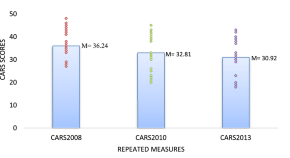
A follow-up study of early intensive behavioral intervention program for children with Autism in Syria
- Wissam Mounzer
- Donald M. Stenhoff
- Amal J. Al Khatib
Dog owner mental health is associated with dog behavioural problems, dog care and dog-facilitated social interaction: a prospective cohort study
- Ana Maria Barcelos
- Niko Kargas
- Daniel S. Mills
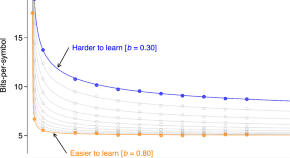
Languages with more speakers tend to be harder to (machine-)learn
- Alexander Koplenig
- Sascha Wolfer
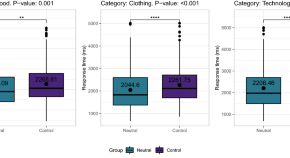
How priming with body odors affects decision speeds in consumer behavior
- Mariano Alcañiz
- Irene Alice Chicchi Giglioli
- Gün R. Semin
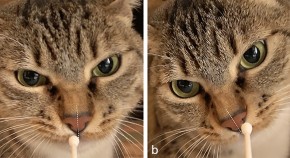
Relationship between asymmetric nostril use and human emotional odours in cats
- Serenella d’Ingeo
- Marcello Siniscalchi
- Angelo Quaranta
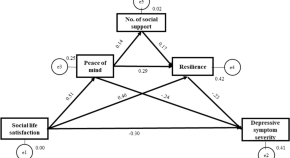
Social support enhances the mediating effect of psychological resilience on the relationship between life satisfaction and depressive symptom severity
- Yun-Hsuan Chang
- Cheng-Ta Yang
- Shulan Hsieh
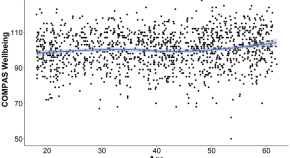
Predicting wellbeing over one year using sociodemographic factors, personality, health behaviours, cognition, and life events
- Miranda R. Chilver
- Elyse Champaigne-Klassen
- Justine M. Gatt
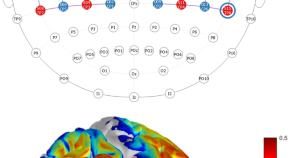
Multimodal assessment of the spatial correspondence between fNIRS and fMRI hemodynamic responses in motor tasks
- João Pereira
- Bruno Direito
- Teresa Sousa
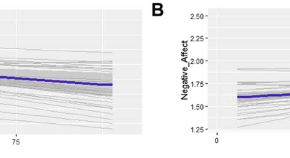
Childhood maltreatment and emotion regulation in everyday life: an experience sampling study
- Mirela I. Bîlc
- Andrei C. Miu
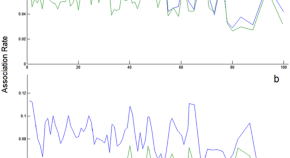
Individual personality predicts social network assemblages in a colonial bird
- Fionnuala R. McCully
- Paul E. Rose
Quick links
- Explore articles by subject
- Guide to authors
- Editorial policies

Conducting research

Animal research

Collecting and analyzing data

Human research

Running a lab

Mentoring researchers

Research ethics
Optimized research tools

Personalized PsycInfo alerts
Monitor trends, explore analytics, and access full text with free access to premium features courtesy of your institution’s subscription to APA PsycInfo.

PsycResearchBot
A snippet of psychological science selected randomly from APA Journals delivered periodically throughout your day.

APA PsycNet
Find full-text articles, book chapters, and more using APA PsycNet, an intuitive search platform built for the discovery and delivery of social and behavioral science content.

Kudos service
Funding your research

Grants and funding
Learn about resources for funding, scholarships, grants, and awards to help support your research
Open science

Openness and rigor in psychological science
APA provides resources for publishing transparent, rigorous research; improving reproducibility in science; and aiding research discovery
Methodological Issues and Strategies, 5e
How to Mix Methods
Practical Ethics for Psychologists
The Complete Researcher
APA Handbook of Research Methods in Psychology
Newsletters

Science Spotlight
This newsletter is your source for the most relevant news and information for psychological scientists, by psychological scientists.

APA Editor’s Choice
This newsletter offers a free, biweekly review of APA Journal articles selected as outstanding, noteworthy, and impactful for the field by APA journal editors.

Highlights in psychological research
Curated content from APA Publishing, featuring scholarly works on current issues, summaries of research, interviews with authors and editors, and more.

Research Topics is a collection of previously published articles, features, and news stories. They are meant to serve as an information clearinghouse and represent some of APS’s most requested and publicly relevant subjects. Note: this content may reflect the accepted style and terminology of the date the articles were first published.
Trending Topics

Disaster Response and Recovery
Disasters like Hurricane Florence and Typhoon Mangkhut draw massive media coverage, trauma interventions, and financial donations to victims. But psychological research shows the efforts don’t always yield the intended benefits.

Environment and Climate Change
Psychological scientists are studying how we’re all weathering a warming planet.

Myths and Misinformation
How does misinformation spread and how do we combat it? Psychological science sheds light on the mechanisms underlying misinformation and ‘fake news.’

Learn about the mechanisms underlying our generous motivations and behaviors.
For psychological scientists, exploring the less pleasant aspects of individual and social nature, like violence and aggression, is an occasional necessity.

Aggression and Violence
Research is showing that aging equals anything but cognitive decline and unhappiness.

Psychological scientists have done extensive research on the aging brain, Alzheimer's Disease, different types of dementias, and much more.

Alzheimer’s Disease and Other Dementias
How do pets influence our well-being? Why does the face of a puppy or the purr of a cat soothe us? Psychological research provides some insights.

Animal Behavior
Developments in AI and machine learning herald unprecedented leaps in many applications, including human psychology itself. Algorithmic bias is just one issue of concern.

Artificial Intelligence (AI) and Machine Learning
Whether you're driving, studying, or listening to a business presentation, keeping focused can be a challenge when boredom and distractions compete for your focus. Research findings have identified the factors that keep our minds on task -- or off track.

Attention and Distraction
Psychological science on the effects of prejudice, and how to counter these beliefs.

Bias and Stigma
Learn what researchers have discovered about the factors that lead to bullying and the long-term consequences it can have.

The World Health Organization has added "burnout" to its International Classification of Diseases. Learn what psychological scientists have discovered about the possible causes and symptoms of burnout.

Psychological research reveals the long-lasting cognitive, social, and neurobiological consequences of stress and trauma experienced in childhood.

Childhood Adversity
A growing body of research connects various aspects of children's environments and their emotional well-being.

Childhood and Adolescent Mental Health
Psychological scientists have designed cognitive tests that can help identify everything from memory deficits to cultural heritage.

Cognitive Testing
A collection of studies shows that compassion gets stronger with training and this training can even change brain function.

It's a big-time showdown for France and Croatia in the upcoming FIFA World Cup final. Science reveals how players and fans alike handle the pressure of climactic competition.

Competition
From international wars to political arguments at the dinner table, conflict is an integral part of the human experience. Psychological scientists have uncovered a wealth of knowledge about the ways cooperation and acceptance can overpower those clashes.

Conflict and Conflict Resolution
What drives people to believe in vast conspiracies and dismiss facts as hoaxes? Psychological research identifies some motivations.

Conspiracy Theories
The criminal justice system was designed to find and punish perpetrators guilty of the crimes of which they are accused. Psychological science helps repair and maintain the public’s trust in the system and eliminate threats to equal justice.

Criminal Justice
How do people respond to increasing cultural diversity in their communities, cities, and countries? Researchers investigate.

Cultural Diversity
Being curious about the world around us can have benefits at school, work, and other contexts, studies show.

Psychological scientists are exploring how we use digital media and the consequences, both positive and negative, it can have in everyday life.

Digital Media
Disasters like Hurricane Florence and Typhoon Mangkhut draw massive media coverage, trauma interventions, and financial donations to victims. But psychological research shows the efforts don't always yield the intended benefits.

How do motorists develop the higher-order cognitive processes required to navigate safely? Research explores this and more.

Driving and Cars
Read what psychological researchers have discovered about the effects of eating on mood, behavior, and cognition.

Eating and Food
Psychological scientists are studying how we're all weathering a warming planet.

The psychology and science behind how individuals and groups respond to epidemics.

Epidemics and Public Health Behavior
Psychological scientists identify factors that prompt people to lie, cheat, bribe, and steal and strategies for addressing such unethical behavior.

What motivates us to exercise? And what effects does exercise have on mental function? Psychological scientists are exploring the ins and outs of physical activity.
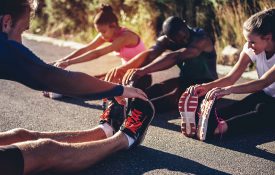
Understanding the science behind eyewitness memory can have important implications for criminal justice procedures.

Eyewitness Memory
APS offers some scientific insights into family dynamics.

Family Relationships
Why are we scared of some things and not others? Psychological scientists are exploring the many facets of fear and the mechanisms that drive it.

Friendships are unique relationships that offer researchers a window into many aspects of life, including personality, longevity, health, and well-being.
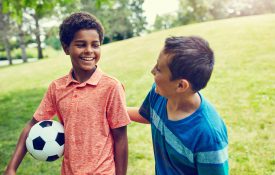
Researchers explore the factors that perpetuate gender inequality and the effects that such bias can have on women in the workplace and beyond.
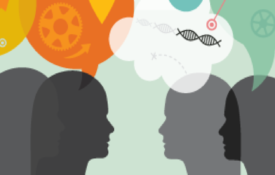
Gender and Bias

Effort, stamina, and purpose drive our accomplishments — science shows us what to do to keep motivation going.

Goals and Motivation
In some of the most famous cases of money laundering, corporate fraud, and tax evasion lies a relentless appetite for big profits and personal wealth. How does greed affect our sense of morality?

Greed and Corruption
Psychological scientists are leading the way in addressing the mental health issues resulting from traumatic events.

Grief and Trauma
Psychological science sheds light on happiness, from a personal to an economic level.

Learn how the human brain influences what our ears register - and what they don't.

Psychological science offers a variety of reasons to be hopeful about progress in science and the well-being of individuals and societies worldwide. Read about the most promising discoveries and advances of the past few years.

Learn about the research on what makes you laugh, why something you find funny is offensive to someone else, and more.

We’re averse to hypocrites because their disavowal of bad behavior sends a false signal about their true nature.

Unconscious bias can lurk below the level of conscious awareness, but researchers are working to uncover more effective methods of reducing these prejudices.

Implicit Bias
Psychological and educational interventions can make a positive difference in a person's trajectory or even their life. What factors influence how interventions either persist over the long term or fade out?

Interventions
Psychological science has played a leading role in busting misconceptions about sexual orientation and gender identity, and in changing people's attitudes toward individuals who are part of the LGBTQIA+ community.

Psychology researchers are identifying how we build strong reading skills in early childhood and the factors that contribute to difficulty with reading comprehension.

Researchers explore the causes, impacts, and possible interventions for loneliness and social isolation.

Loneliness and Social Isolation
Frank Sinatra crooned that they go together like a horse and carriage, but in truth love and marital health can falter over time. Scientists have identified a number of factors that sustain love through better or worse.

Love and Attraction
Learn about the vast stores of memory research that psychological scientists have amassed in recent years.

Psychological scientists have amassed a vast amount of empirical knowledge on the causes of and best treatments for mental disorders.

Mental Health
Researchers explore how practices associated with mindfulness and meditation can affect decision-making and other cognitive processes.

Mindfulness and Meditation
Psychological scientists are identifying cognitive, developmental, and cultural aspects of music perception and the essential role that music plays in our everyday lives.

How does misinformation spread and how do we combat it? Psychological science sheds light on the mechanisms underlying misinformation and 'fake news.'

Scientists are increasingly busting some myths and making new discoveries about a dark personality trait.

Deal making at the international, business, and interpersonal levels involves a variety of emotional, social, and language factors that lead to a final agreement -- or a stalemate.

Negotiation
Read about the wealth of psychological studies on neurodiversity and the differences in learning, attention, and mood.
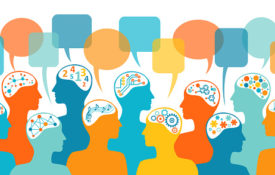
Neurodivergence
Psychological scientists are devoting an increasing amount of their research time examining the role of the brain in human behavior, emotion, and cognitive health.
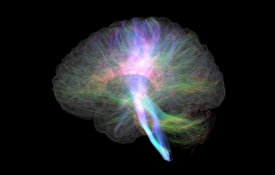
Neuroscience
Recent news events have sparked a surge of interest in the Dunning-Kruger effect -- a distorted view of one's knowledge and ability. Learn how this cognitive bias can spark overconfidence among world leaders and corporate giants.

Overconfidence
Amid the epidemic of opioid addiction, psychological science has demonstrated that pain relief doesn't have to be pharmaceutical.
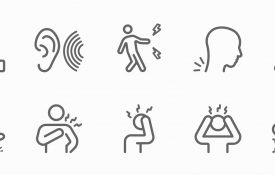
Pain Management
Personality tests are the center of countless psychological studies exploring targeted marketing, workplace dynamics, and different brain structures.

Personality Traits
Public trust in the police has remained flat for decades, a problem that has become especially salient due to recent events.

Policing and Law Enforcement
A scientific analysis upends the notion that people on the political right are more biased about their ideological views than are people on the left.

Political Differences
Why do we dawdle and delay, even on the most important tasks? Researchers explore the causes and consequences of procrastination.

Procrastination
Plenty of beliefs about human psychology are based on myth masquerading as facts. Psychological scientists have not only exposed the weak evidence for these notions, but can recommend strategies to help us to distinguish true science from bunk.

Pseudoscience
Psychological researchers are examining the complexities of racism and xenophobia at both the interpersonal and societal levels.

Racism and Discrimination
Psychological research explores how we evaluate, perceive, and choose whether to take risks.

Why does self-control fail, and how can we boost it? Researchers explore the mechanisms underlying this important ability and how it develops over time.

Self-Control
The #metoo movement has brought sexual harassment to the center of public consciousness, raising questions about the causes of predatory actions. Psychological research shows how feeling powerful relates to sexually coercive behavior.

Sexual Assault and Harassment
Insufficient sleep has been shown to have adverse effects at work, in driving, and even in court.

From the scent of flowers to the stench of hazardous chemicals, our sense of smell guides us through our environment and significantly influences our emotions, as scientists have discovered.

How does athletic engagement and competition affect our thoughts and behaviors? Learn what psychological science has uncovered.

New discoveries about the ill effects of psychological stress abound, but scientists are also learning about buffers to stress.

Psychological scientists delve into study strategies, math anxiety, reading comprehension, and more.

Studying and Learning
Research from APS on addiction and substance abuse.

Substance Abuse and Addiction
Scientists show how get-aways and enjoyable activities affect our work lives and relationships.

Taking a Break
Psychological research is fostering understanding of the important factors that contribute to effective teaching, from individual instruction to school climate.

The psychological mechanisms that lead us to have faith in certain people and be suspicious of others are vast. Learn what psychological researchers have discovered about interpersonal trust.

September 10 is World Suicide Prevention Day. Read about the steps that psychological scientists are taking to identify and help people at risk of taking their own lives.

Understanding and Preventing Suicide
Psychological science suggests that behavioral 'nudges' which aim to alter individuals' actions rather than their attitudes are essential to promoting vaccination against COVID-19 and other vaccine-preventable diseases.

Vaccination
The effects of playing video games on well-being seem to depend largely on why and how an individual chooses to partake.

Video Games
The way the brain and the human eye process visual stimuli, including illusions, is a thriving area of psychological science.

Researchers unravel the mystery of voting behavior, including why people vote in seemingly unpredictable or illogical ways.

How does weather, both ordinary and extreme, affect decision-making, behavior, and emotions?

Weather and Behavior
Research in psychological science reveals the causes and consequences of bullying behavior in the office.

Workplace Bullying
When done well, efforts to improve intergroup harmony at work can uplift individuals and lead entire organizations to perform at a higher level.

Workplace Diversity
Privacy overview.
| Cookie | Duration | Description |
|---|---|---|
| __cf_bm | 30 minutes | This cookie, set by Cloudflare, is used to support Cloudflare Bot Management. |
| Cookie | Duration | Description |
|---|---|---|
| AWSELBCORS | 5 minutes | This cookie is used by Elastic Load Balancing from Amazon Web Services to effectively balance load on the servers. |
| Cookie | Duration | Description |
|---|---|---|
| at-rand | never | AddThis sets this cookie to track page visits, sources of traffic and share counts. |
| CONSENT | 2 years | YouTube sets this cookie via embedded youtube-videos and registers anonymous statistical data. |
| uvc | 1 year 27 days | Set by addthis.com to determine the usage of addthis.com service. |
| _ga | 2 years | The _ga cookie, installed by Google Analytics, calculates visitor, session and campaign data and also keeps track of site usage for the site's analytics report. The cookie stores information anonymously and assigns a randomly generated number to recognize unique visitors. |
| _gat_gtag_UA_3507334_1 | 1 minute | Set by Google to distinguish users. |
| _gid | 1 day | Installed by Google Analytics, _gid cookie stores information on how visitors use a website, while also creating an analytics report of the website's performance. Some of the data that are collected include the number of visitors, their source, and the pages they visit anonymously. |
| Cookie | Duration | Description |
|---|---|---|
| loc | 1 year 27 days | AddThis sets this geolocation cookie to help understand the location of users who share the information. |
| VISITOR_INFO1_LIVE | 5 months 27 days | A cookie set by YouTube to measure bandwidth that determines whether the user gets the new or old player interface. |
| YSC | session | YSC cookie is set by Youtube and is used to track the views of embedded videos on Youtube pages. |
| yt-remote-connected-devices | never | YouTube sets this cookie to store the video preferences of the user using embedded YouTube video. |
| yt-remote-device-id | never | YouTube sets this cookie to store the video preferences of the user using embedded YouTube video. |
| yt.innertube::nextId | never | This cookie, set by YouTube, registers a unique ID to store data on what videos from YouTube the user has seen. |
| yt.innertube::requests | never | This cookie, set by YouTube, registers a unique ID to store data on what videos from YouTube the user has seen. |

IMAGES